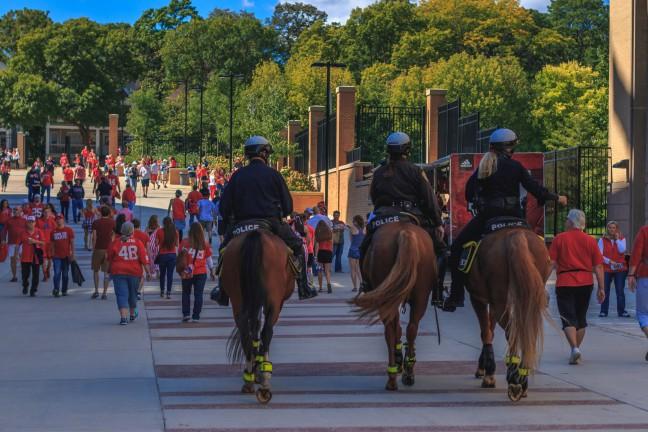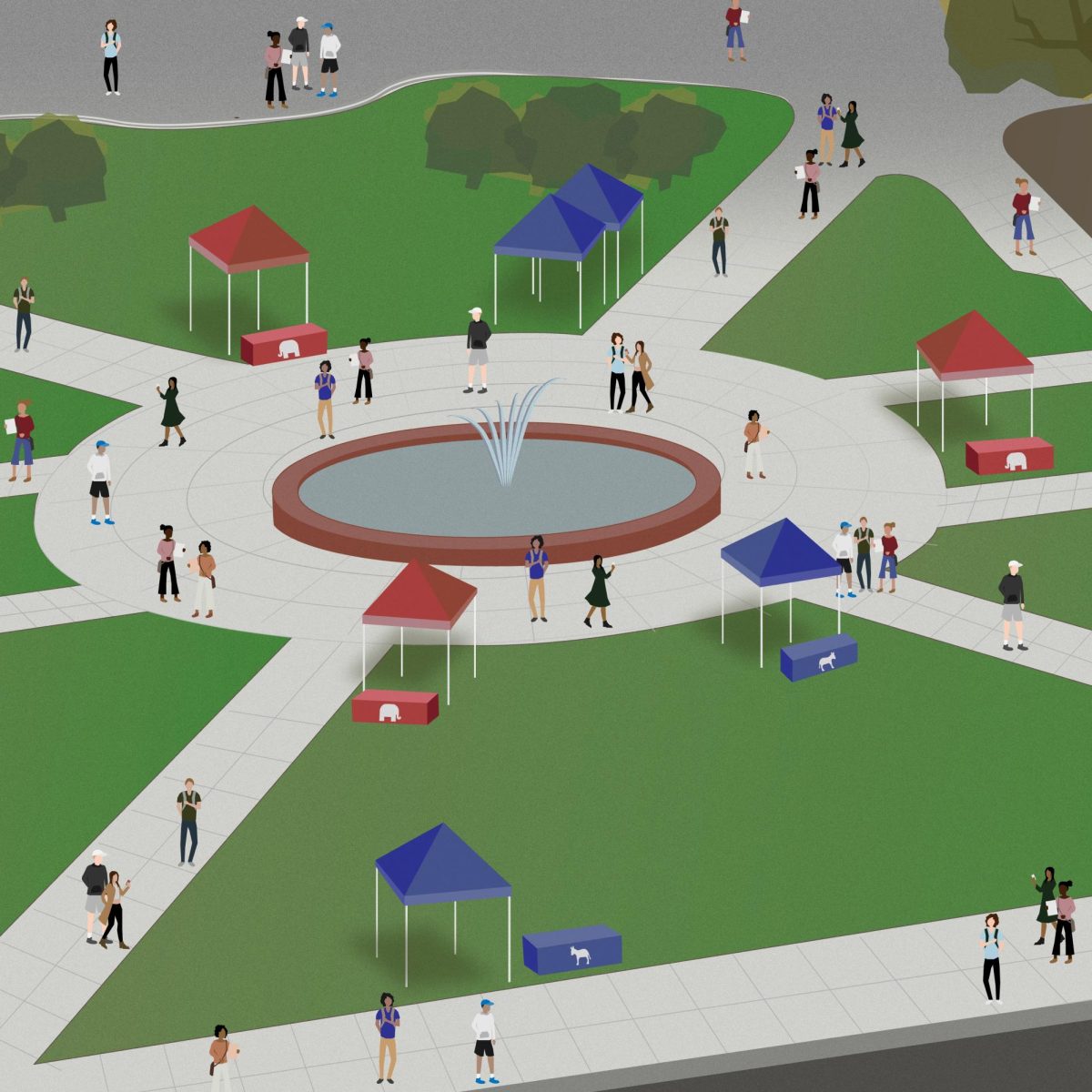Ranger’s game day ritual isn’t a beer in the shower or mimosas with the roommates. Instead, he eats a bale of hay and poops outside the police department.
Ranger is among the small team of police horses that stand guard outside Camp Randall, hoping to keep order during one of the most exciting — and potentially dangerous — traditions of the season.
After hearing complaints last year, the team now has a paid high school freshman who moves horse feces to discrete locations before and during the game.
The officers and equines come from nearby departments in Shorewood Hills and Jefferson County Saturdays to help University of Wisconsin Police Department keep order during Badger games.
Training
Ranger and his fellow equine patrollers looked unfazed as running children and intoxicated undergraduates swarmed the area, and were at ease when some came in close to interact with them.
But Anne Murphy, an officer with Shorewood Hills Police Department and Ranger’s owner, said not all horses are cut out for policing.
Murphy trains her own horses at her farm. She’s been riding at Badger games for almost 19 years and uses her horses for other events in the region as well.
Throughout the day, dozens of Badger fans of all ages approach Ranger and the other horses, who stay calm as people touch their faces, necks and shoulders.
“They have to go from sometimes violent confrontation to having people pet them again,” Murphy said.
The amount of time it takes for a horse to become ready to patrol an event like a Badger game varies greatly, Murphy said. Ranger, for example, likes interacting with the public, but isn’t as good at the “law enforcement” side of the job, she said.
Horses who do this kind of work have to be able to tolerate “basically everything,” Murphy said, such as intoxicated students who occasionally throw things at the horses, who are instinctively flighty animals.
Murphy said she prepares for situations like this with a “positive reinforcement” system. Sometimes, when horses she trains are eating, she’ll throw Styrofoam balls at them. This helps them associate being assaulted with food, which could help in a real-life incident, she said.
“People laugh when they see what I do with my horses,” Murphy said.
She also helps her horses get ready for the unexpected by approaching them from behind to desensitize them from other potentially startling situations.
Kari Sasso, UWPD assistant chief and a mounted officer, said the key to getting horses ready for games is breaking the training up into parts.
Horses as ambassadors
Once the horses are ready to patrol large events like games, they can serve as a link between law enforcement and the community, Sasso said.
“When’s the last time you asked to pet a police officer?” Sasso joked.
The horses, Murphy said, also help mounted officers establish a connection with the community, as the horses encourage kids to come up to them.

Andrew Salewski/The Badger Herald
Children might not otherwise have a positive interaction with a police officer, Murphy said. And the benefit is two-fold, since people are also having a positive interaction with a horse.
“I deem a day a success if I can get someone to pet him who’s terrified of horses,” Murphy said.
While Murphy said not every interaction game day partiers have with the force is positive, sometimes having a horse there can make a tense situation more manageable.
Horses as law enforcement
But Sasso said horses are more than just a community link.
“A horse can equal 10 ground troops if you need them to in a crowd control situation,” Sasso said.
Sasso said sometimes the gates can get a little “pushy shovey,” which is when she and her partners go in and regain control of the situation.
Additionally, Sasso said the horses have “a presence” about them which can help officers escort difficult fans off the property if they have been ejected from the game.
Horses, like vehicles, can move faster than ground officers, but can also maneuver in crowds. This makes them ideal for something like a football game, Sasso said.
While not every experience with every fan is positive, Murphy said she knows that she and Ranger are helping keep students safe.

Andrew Salewski/The Badger Herald
One time, a few years ago, Ranger and Murphy had to expel someone officers identified as too intoxicated to enter Camp Randall. Three years later, the man’s friend approached Murphy and thanked her and Ranger for helping keep his friend safe.
Experiences like this, Murphy said, remind her how much of an impact mounted officers can make.














